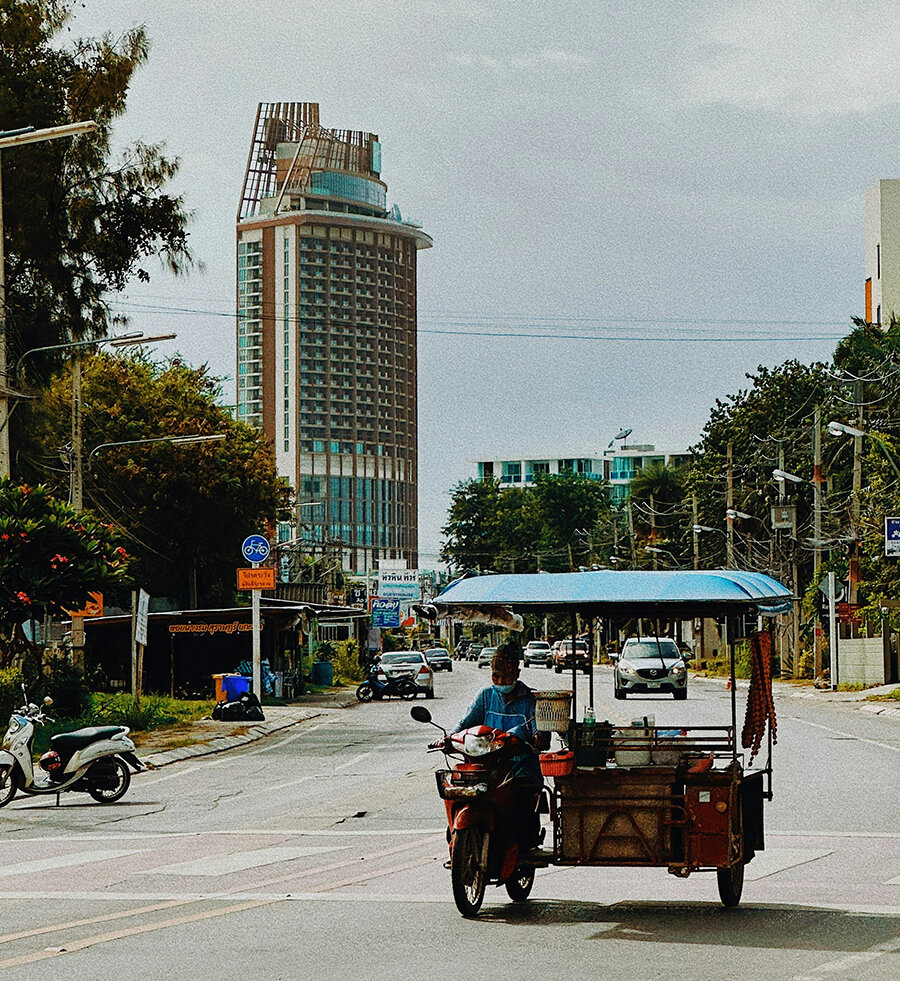Thailand Eases Rules for Long-Term Residency Visas

Thailand’s Cabinet of Ministers has revised the requirements for long-term residency visas (LTR) for highly skilled professionals, wealthy foreign residents, and digital nomads, aiming to attract more foreign talent and investment to the country, Nation Thailand reports.
The Thailand Board of Investment (BOI) proposed these adjustments, including lowering the corporate revenue threshold for foreign companies sponsoring visa applicants from $150 million over the past three years to $50 million, as clarified by the Bangkok Post.
The Thai government concluded that the original threshold was excessively high and did not align with the financial capabilities of foreign workers with stable employment. Employees of subsidiaries of large multinational corporations can now obtain a visa if they demonstrate financial stability through the financial statements of their parent company.
Additionally, the list of targeted industries for highly skilled professionals has been expanded to include disaster and risk management, as well as comprehensive innovation, moving beyond the previous focus on science, technology, and key specialized sectors. The requirement for specialists to have at least five years of work experience in their field has also been eliminated.
The Cabinet also removed restrictions on the number of dependents under the LTR visa program. Previously, applications were limited to a maximum of four dependents, while other visa categories had no such restriction.
For wealthy foreign applicants, the requirement to maintain a minimum annual income of $80,000 for two consecutive years before applying for an LTR visa has been abolished. Authorities noted that some applicants who met investment criteria were still being denied visas due to insufficient income, even though income was not originally intended as a primary requirement.
In another significant change, most Smart Visa categories have been discontinued, except for startup founders. Other Smart Visa categories largely mirrored LTR visa conditions, and the government now intends to promote LTR visas as the main pathway for long-term foreign residents.
Thailand’s LTR Visa: A Growing Attraction for Foreign Residents
Thailand’s long-term residency visa (LTR) was first introduced in 2022, granting foreign residents a 10-year stay, a digital work permit, income tax benefits, and other incentives. The program was designed to stimulate the economy in the post-pandemic era. More than 6,000 applicants have already been approved, with the majority coming from Europe.
“We believe these changes, ensuring a more inclusive and competitive approach, will further strengthen Thailand’s position as a global hub for investment and high-potential talent,” said Narit Therdsteerasukdi, Secretary-General of the BOI.
“Simplifying visa procedures is an essential part of our commitment to improving ease of doing business.”
Thailand’s Broader Visa Reforms
Earlier, Thailand extended its 60-day visa exemption scheme for citizens of 93 countries, including Russia, Greece, Georgia, Canada, China, India, South Africa, the UAE, Indonesia, the US, Kazakhstan, and Japan. Previously, the exemption applied only between May 1 and October 31, but in mid-2024, the government made it permanent. Travelers can now extend their stay for another 30 days at immigration offices.
Additional entry relaxations have also been introduced for digital nomads and students. Foreigners planning to work in Thailand can now stay for up to 180 days, with the option to extend their stay for another 180 days under the Destination Thailand Visa (DTV). Meanwhile, foreign students who earn at least a bachelor’s degree in Thailand can remain in the country for up to one year after graduation.
Another significant change is the elimination of the requirement for foreign residents to leave the country to change their visa type. Previously, switching from a student visa to a work visa required leaving Thailand and reapplying. Now, foreigners can simply apply at an immigration office without exiting the country.
Long-term visa applicants aged 50 and older have also benefited from a major reduction in mandatory health insurance coverage. Previously, applicants needed a policy worth 3 million baht ($83,000). The new threshold has been lowered to 440,000 baht ($12,108) for inpatient care and 40,000 baht ($1,100) for outpatient care.
Attracting More Foreign Investors
Thailand is also aiming to attract more foreign investment by planning to reduce corporate tax rates from 20% to 15% to align with the Global Minimum Tax (GMT) framework. Additionally, the personal income tax rate for high earners will be lowered from 35% to 15%, while Value-Added Tax (VAT) may be increased. Currently, Thailand’s VAT is only 7%, whereas the global standard ranges between 15-25%.
However, not all tax changes have been welcomed by foreign residents. Last year, Thailand introduced a personal income tax on foreign-earned income, affecting anyone residing in the country for more than 180 days per year who earns income from overseas work or assets. The revision closed a loophole that previously allowed residents to avoid taxation by delaying overseas income transfers until the following tax year.
A More Flexible and Competitive Visa System
Thailand’s latest visa policy changes reflect the government’s strategic efforts to attract skilled workers, investors, and digital entrepreneurs by reducing bureaucratic barriers and creating a more flexible residency framework.
While these reforms significantly improve ease of entry and residence, other regulatory changes—such as tax policy shifts—may still impact Thailand’s overall appeal among foreign professionals and retirees. Moving forward, the government's ability to balance tax incentives with economic sustainability will determine whether Thailand solidifies its position as a top destination for long-term foreign residents.








